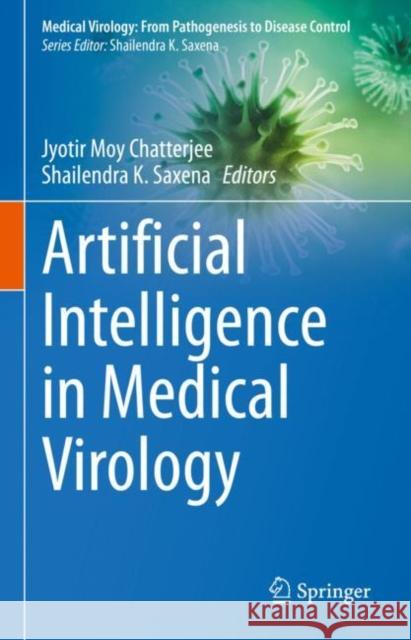Artificial Intelligence in Medical Virology » książka
Artificial Intelligence in Medical Virology
ISBN-13: 9789819903689 / Angielski
Artificial Intelligence in Medical Virology
ISBN-13: 9789819903689 / Angielski
(netto: 766,76 VAT: 5%)
Najniższa cena z 30 dni: 771,08
ok. 16-18 dni roboczych.
Darmowa dostawa!
This book comprehensively reviews the potential of Artificial Intelligence (AI) in biomedical research and healthcare, with a major emphasis on virology. The initial chapter presents the applications of machine learning methods for structured data, such as the classical support vector machine and neural network, modern deep learning, and natural language processing for unstructured data in biomedical research and healthcare. The subsequent chapters explore the applications of AI in tackling COVID-19, analysis of the pandemic, viral infection, disease spread, and control. The book further identifies the potential applications of machine learning in the field of virology with a focus on the key aspects of infection: diagnosis, transmission, response to treatment, and resistance. The book also discusses progress and challenges in developing viral vaccines and examines the application of viruses in translational research and human healthcare.Furthermore, the book covers the applications of artificial intelligence-mediated diagnosis and the development of drugs to treat the disease. Towards the end, the book summarizes the ethical and legal challenges posed by AI in healthcare and biomedical research. This book is an invaluable source for researchers, medical and industry practitioners, academicians, and students exploring the applications of AI in biomedical research and healthcare.
This book comprehensively reviews the potential of Artificial Intelligence (AI) in biomedical research and healthcare, with a major emphasis on virology. The initial chapter presents the applications of machine learning methods for structured data, such as the classical support vector machine and neural network, modern deep learning, and natural language processing for unstructured data in biomedical research and healthcare. The subsequent chapters explore the applications of AI in tackling COVID-19, analysis of the pandemic, viral infection, disease spread, and control. The book further identifies the potential applications of machine learning in the field of virology with a focus on the key aspects of infection: diagnosis, transmission, response to treatment, and resistance. The book also discusses progress and challenges in developing viral vaccines and examines the application of viruses in translational research and human healthcare.Furthermore, the book covers the applications of artificial intelligence-mediated diagnosis and the development of drugs to treat the disease. Towards the end, the book summarizes the ethical and legal challenges posed by AI in healthcare and biomedical research. This book is an invaluable source for researchers, medical and industry practitioners, academicians, and students exploring the applications of AI in biomedical research and healthcare.











